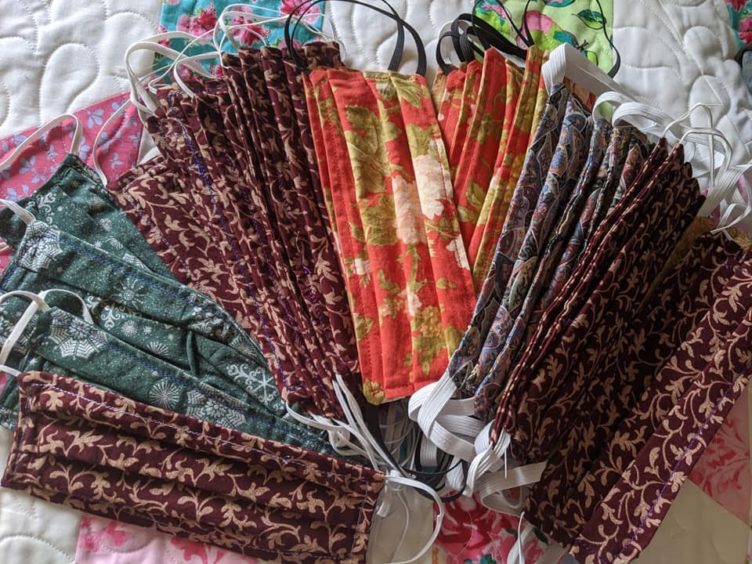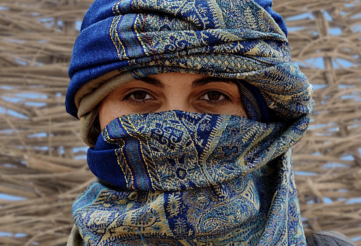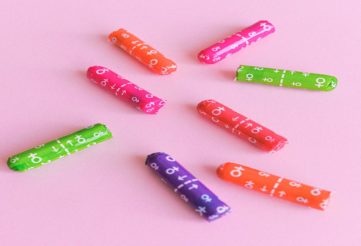#Masks4Millions FAQ

Frequently Asked Questions for the DfG #Masks4Millions Response:
Q. What pattern should I use?
A. We are finding that different hospitals, clinics, long term care facilities, fire stations, homeless shelters, food banks, and others who are in need of masks have various requirements. In some cases they are looking for a mask that fits over a N-95 mask to make them last longer, others are requesting a pocket to use for various filters to give to patients, and in many other situations, a basic mask can be fine for helping not touch their face.
Check with the group who you are making the masks for and ask if they have a specific request before starting if possible. If you are unsure, the basic mask is well received in a majority of situations – especially for immune-compromised individuals. When you register with us we will update you as information comes in.
Q. Do you have video tutorials?
A. Yes, there are a number of options. Please sign up here and we will send you patterns and videos.
Q. What are medical personnel saying about the use of cloth masks?
A. “Cloth masks can be very helpful in preventing the spread of COVID-19. Similar to paper surgical masks, cloth masks help prevent the transmission of infectious droplets from the patient to the HCP (health care provider), especially if used in conjunction with eye protection and gloves (as recommended by the CDC). Masks can also prevent potentially infectious droplets from entering the air nearby. Though there is no data yet to support this, cloth masks should work similarly to paper surgical masks as they both act as a non-sterile physical barrier to person to person droplet transmission.
Due to the reusable nature of cloth masks, thorough washing techniques after daily wear is an important component of infectious disease transmission reduction. The mask does not need to be sterilized but should be cleaned with a disinfecting product such as soap and water. Cloth masks could be an important addition to existing medical equipment to help prevent the spread of COVID-19.
Because both a surgical and cloth mask help prevent potentially infectious droplets from a cough or sneeze from entering the air nearby, those with a persistent cough should wear a mask when around others. Cloth masks may be more comfortable in the long term and may lead to greater adherence by those possibly infected individuals.”
— Dr. Karen E. Harris, MD, MPH
Days for Girls International Board Chair
Program Director for the OB/GYN Residency
UCF/HCA Consortium – Gainesville
Q. Where should I send masks once they are made?
A. We are moving fast and do not have a central clearinghouse like we normally do for Kits. Things are changing hour by hour for this issue. If possible, call your local hospitals, clinics or other vulnerable population sites (homeless shelters, prisons, food banks, people with suppressed immune systems, etc.) and ask if they are in need, and if so, which style they prefer.
We will also continue working on matching requests we receive to sewers. Watch our Facebook page as we post requests. In addition, those who have registered on the Masks4Millions response page will receive updates as we receive them. Make sure to sign up!
Q. I have heard that any type of mask other than a N-95 should not be used and gives a fault sense of safety. Is that true?
A. There are differing opinions and we are not medical experts. We do know that there is a shortage and all medical and immune-compromised people should be prioritized to receive our N-95 supply. But we also have heard that for someone who is sick, or finds a mask helps them not touch their face, then we also support their choice, especially for those that are not able to stay at home (the preferred location!)
Here is one article which quotes from Benjamin Cowling, an epidemiology professor at the University of Hong Kong: “Masks are not a magic bullet against coronavirus… but if everybody wears face masks, it probably can help, along with all the other measures (like hand washing and social distancing), to reduce transmission.”
Q. Are you still focused on ensuring menstrual products and health education during this pandemic?
A. Yes! Because periods don’t pause for pandemics, the need for healthy menstrual products people can count on month after month will remain a quality option that may be even more important to more of us as supply shortages occur.
Here are a few of our current responses:
- Local shelters, food banks, or charities near you, may be low on menstrual products. Please call to confirm the need of pads, tampons, cups, or DfG sustainable Hybrid Kits.
- Note: this does NOT mean going to the store to buy them! Rather, if you have a stockpile of DfG supplies or other menstrual products that you won’t need or use in the next few months, consider donating unopened boxes to a location near you. PLEASE observe local advice for travel and movement.
- Please, drop-offs only. While education is typically a key component of our Kit distributions, the health of volunteers and recipients is critical, so we ask that you explain how to use Kits either in an email or over the phone. And include the DfG Trifold available in the Chapter/Team Leadership Room OR the new Care and Usage tag.
- Community BONUS: As disposable single-use products become more scarce, you could also consider posting on your Facebook page that you can make washable DfG PODs (Our patented pad module, a Portable Object of Dignity) available to your community as a whole, donations are welcome. Please maintain social distancing. Wanting to find a Chapter near you? Please visit our website or email chapters@daysforgirls.org
Q. Can I make masks for someone who isn’t in the medical field?
A. Yes, we would encourage you to provide masks to anyone who is immune-compromised, in the service field, and exposed to others or at particular risk who is requesting one. Even with a mask, hand washing, and social distancing matters.
Q. Where do I report the number of masks I made?
A. We are not going to track mask distributions at this moment other than when you filled out the form when you signed up. We will, however, send a follow-up email to ask for an update. We will also be sending you updates once we have information to share.
Q. What if my area doesn’t need masks? Do I need to send my masks to Days for Girls’ HQ?
A. Please work first with your local community. If you are finding that there is not a need we would welcome to have them sent to HQ where we will match them with a request.
Q. What was the Hashtag I should use for my photos when I share on social media?
A. Use the hashtags #Masks4Millions and #PadstoMasks. We also welcome stories to share! Many news outlets are very interested in learning of this effort.
Please email photos and stories of your efforts to communications@daysforgirls.org.
Keep washing your hands, practicing social distancing, and STAY WELL. You matter too. As more questions come in, we will continue to update this list.
Thank you!









